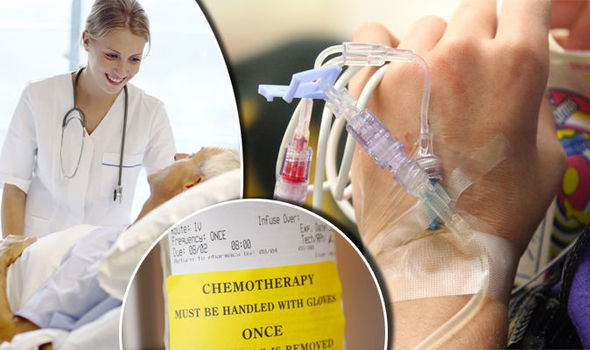Cancer Treatment Warning for Seniors
The older we get the greater our risk of developing some form of cancer. Most doctors will instantly begin a treatment regime. For many the treatment includes surgery and/or radiation and/or chemotherapy.
However, is this the right approach, especially for seniors who often have other health conditions? Consider the story of the 86-year-old father of Lorraine Greggs:
When Lorraine Griggs’ 86-year-old father was diagnosed with prostate cancer, he was treated with 35 rounds of radiation, though he had a long list of other serious medical issues, including diabetes, kidney disease and high blood pressure. The treatment left him frailer, Griggs recalls.
I’ve spoken to a number older cancer survivors and the vast majority of them told me that their cancer treatment often left them sicker than their cancer. While their cancers may have been treated, other health concerns were made worse by the harsh treatment given them for their cancer. That was the case for Lorraine Grigg’s father, whose cancer returned after just a few years.
This time, however, his doctor did something different that should have been done the first time he was diagnosed with cancer. His doctor ordered a geriatric assessment for the elderly man. That assessment included a complete physical and medical history, a psychological assessment, cognitive exam and an evaluation by a physical therapist. The doctor also looked into his social activities including his time spent with friends and shopping habits and eating habits. After the assessments, Griggs reported:
When the doctor saw how physically active and mentally sharp my father was at 89 years of age, but that he had several chronic, serious medical problems, including end stage kidney disease, she didn’t advise him to have aggressive treatment like the first time around.
After the extensive geriatric assessment, the oncologist placed the older patient on 1 pill a day that only slowed down his cancer, which allowed him to continue his active lifestyle until he died 3 years later. Had he been given another treatment of aggressive radiation, chances are he would not have been able to enjoy the last several years of his life.
If you are an older person diagnosed with cancer or have a close loved one who has been diagnosed, then you should seriously consider insisting on a geriatric assessment as reported:
Geriatric assessment is an approach that clinicians use to evaluate their elderly patients’ overall health status and to help them choose treatment appropriate to their age and condition. The assessment includes questionnaires and tests to gauge the patients’ physical, mental and functional capacity, taking into account their social lives, daily activities and goals.
The tool can play an important role in cancer care, according to clinicians who work with the elderly. It can be tricky to predict who will be cured, who will relapse and who will die from cancer treatment. Geriatric assessments can help physicians better estimate who will likely develop chemotherapy toxicities and other serious potential complications of cancer treatment, including death.
Geriatric assessment includes an evaluation by a physical therapist, a psychological assessment, a cognitive exam and a complete physical and medical history. The doctor takes all these factors into account and tallies a score for their patient to help guide their decision-making about the patient’s treatment.
Is a geriatric assessment always accurate and reliable? No, but then neither is rushing blindly into the harsh treatment usually given. Supriya Gupta Mohile, a geriatric oncologist and professor of medicine at the University of Rochester, commented:
It’s better than the clinician eyeball test. If I didn’t do a geriatric assessment and just looked at a patient I wouldn’t have the same information.
We want to help older adults successfully undergo cancer treatment without significant toxicities, so it leads to a survival benefit. What we don’t want to do is treat patients who will be harmed.
We went through the decision-making together and I was able to explain how it could cause harm and it would have no risk benefit. He wanted to live and not suffer toxicities.
No one lives forever but that doesn’t mean they have to spend their last years living in misery. A geriatric assessment may be just the thing to allow their last years to be more enjoyable, and isn’t that what’s really important?








Recent Comments